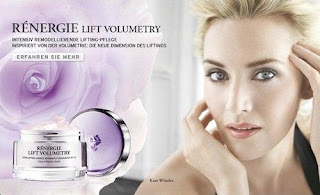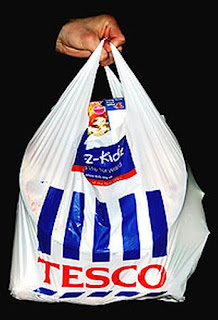Once super-hero Solution had done its job, the end benefit would be celebrated with cheesy smiles all around (particularly if the Problem was unsightly yellow stains on teeth, or similar.)
However, after a while, 'Problem Fatigue' began to set into that style of advertising. Most of the world's household stain problems, washday woes and less-than-perfect skin, hair and teeth gripes had been tackled, if not completely eradicated by the various solutions on offer. Companies started inventing problems to which they'd already made the solution. Or dilemmas which no normal person in their right mind would ever entertain. It all got a bit ludicrous.
But a few years ago, advertisers started to strike a rich seam. Problems - less physical, more attitudinal - that the advertising and marketing industry had themselves created.
Take the picture above. Back in the 80s, 90s and even early noughties, clothes and toys for young children were fairly gender-neutral. With a few notable exceptions. But for the last couple of decades, more and more sparkly pink and girl/boy-designated books, toys, birthday cards, wrapping paper and even cakes and sweets have crept in. So, all of a sudden, there's an issue - gender stereotyping - that brands can bravely fight against. While keeping quiet about who created the problem in the first place.
Ditto Objectified Women in Advertising. There are more than a few plucky brands taking a stand against this issue. Accompanying their efforts is a narrative that suggests that back in the dark ages of the last century, almost all women in advertising looked something like this, unless they were cast into the role of mother/housewife:
And, worst of all, women at the time meekly accepted their lot of how they were portrayed. Really? Maybe most of us had more important things than advertising to worry our pretty little heads about at the time.
While we're on the subject of women, there are those now well-known enemies: flawless beauty:
And stick-thin models:
What takes real bravery, though, is to admit to having created (or exacerbated) a real problem, like plastic waste, or unnecessary additives in foods and make a commitment to do something about it:
Sometimes the world of advertising, with its issues, problems and solutions, feels rather like the world of reality TV, where the winners of one ghastly show are recycled as contestants for the next.
And no-one outside the echo chamber really cares.













2 comments:
And of course, several years too late, Starbucks is trying to be the big hero in solving the problem it (and its lookalikes) have created:
https://www.brandchannel.com/2018/07/11/starbucks-recyclable-paper-cups/
An article which argues that this may be a symptom of a bigger, more fundamental issue. I'm not sure I agree with it all, but well-worth reading:
https://www.theguardian.com/news/2019/jan/22/the-new-elites-phoney-crusade-to-save-the-world-without-changing-anything
Post a Comment